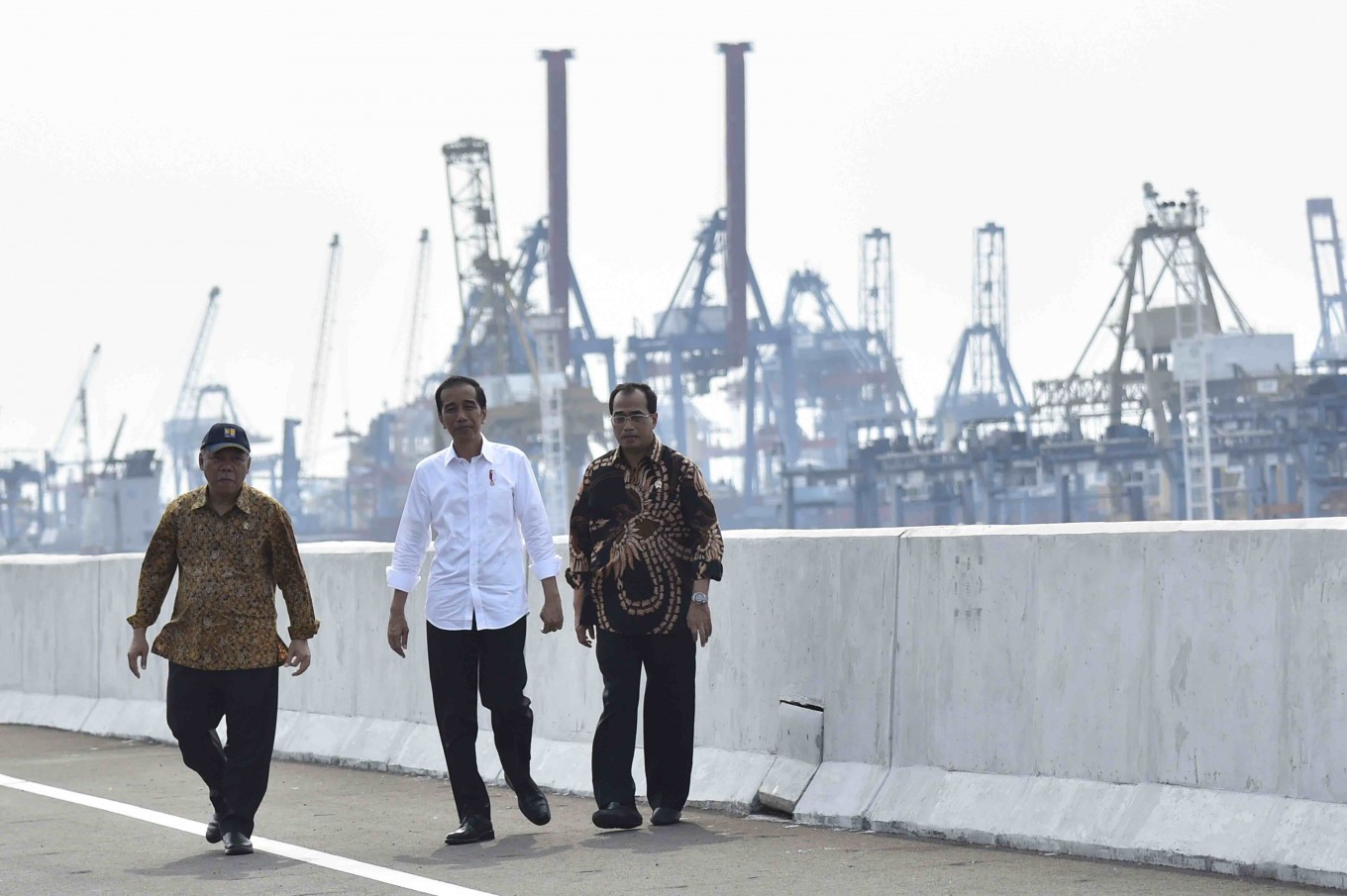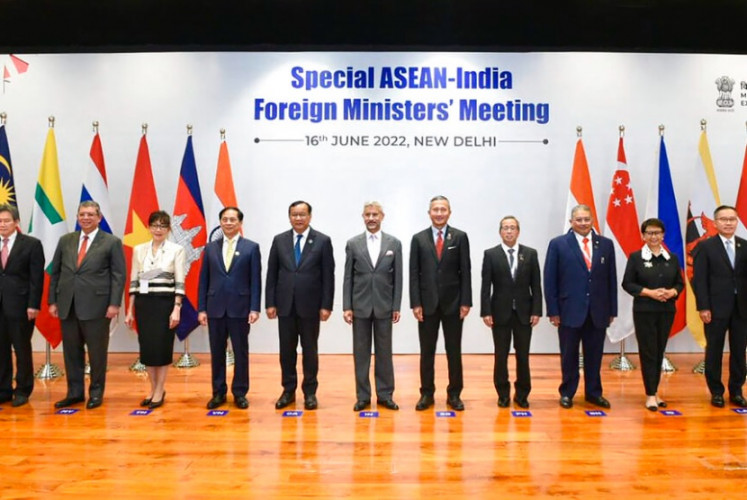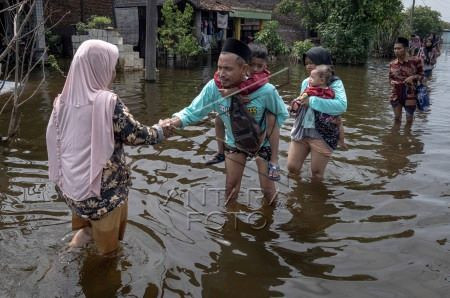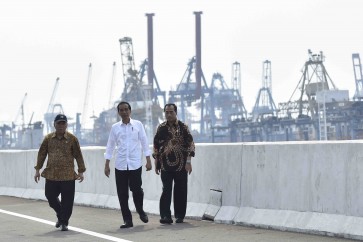The challenge in investing in strategic infrastructure
According to a 2014 report released by McKinsey Global Institute, the global infrastructure funding gap was estimated at US$57 trillion to maintain gross domestic product (GDP) growth through 2030.
Change Size
 President Joko "Jokowi" Widodo (center), Public Works and Public Housing Minister Basuki Hadimuljono (left) and Transportation Minister Budi Karya Sumadi inspect the Tanjung Priok toll road on the day of its inauguration, April 15. (Antara/Puspa Perwitasari)
President Joko "Jokowi" Widodo (center), Public Works and Public Housing Minister Basuki Hadimuljono (left) and Transportation Minister Budi Karya Sumadi inspect the Tanjung Priok toll road on the day of its inauguration, April 15. (Antara/Puspa Perwitasari)
P
romoting investment in strategic infrastructure has been an uphill challenge worldwide, including in Indonesia. According to a 2014 report released by McKinsey Global Institute, the global infrastructure funding gap was estimated at US$57 trillion to maintain gross domestic product (GDP) growth through 2030.
President Joko “Jokowi” Widodo recently encouraged state-owned enterprises (SOE) to conduct a securitization of assets to raise additional financing for infrastructure development in Indonesia.
Asset securitization is part of the Public-Private Partnership (PPP) scheme. PPP schemes have frequently been implemented to finance infrastructure projects in many developed countries, like European countries and the United States. Mostly in developed countries, greenfield projects seem more attractive to institutional investors compared to brownfield projects, which is reasonable as investors can get higher returns and predictable cash flows for a long period of time.
However, under some circumstances, such complicated bureaucracy, lack of data transparency, political instability, highly regulatory risks and a lack of expertise and knowledge in greenfield investment can be considered a high-risk business, especially for foreign investors. A 2015 report from the Organization for Economic Cooperation and Development (OECD) and World Bank Group explained that infrastructure is an asset class vulnerable to the political environment and regulatory risks, especially in developing countries.
Further, it explains that domestic markets in developing countries tend to rely heavily on local and regional banks, as well as multilateral agencies to finance infrastructure projects. Thus, there are often restrictions on investment capabilities, such bureaucracy, controls, taxes, weak financial infrastructure and inefficient debt management.
Although Indonesia was recently granted an investment grade, the strategy to attract more institutional investors, both foreign and domestic, should still be done cautiously.
So under current circumstances, when the government needs to urge infrastructure development, it seems right not to take risks by forcing foreign investors to invest in greenfield projects. Encouraging asset securitization of state owned enterprises, which means the government intentionally directs investors to invest in brownfield infrastructure rather than greenfield infrastructure, seems more realistic.
















